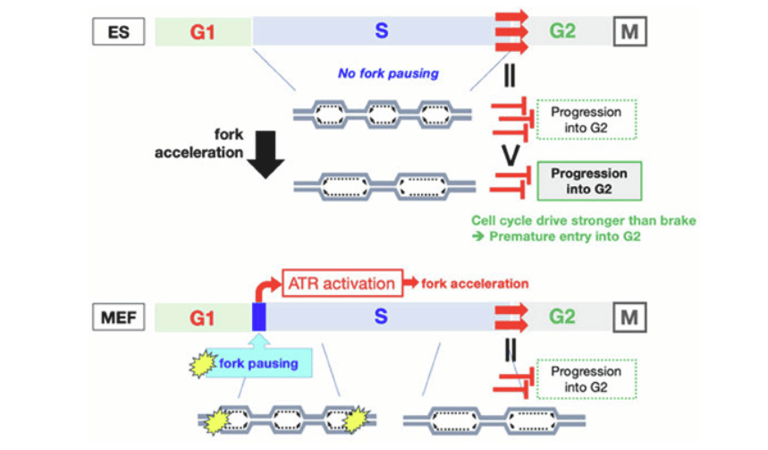Researchers Discover Unique Fork Replication Behavior in Embryonic Stem Cells
BIOTECHNOLOGY
8/26/2024
Researchers from the National Institute for Basic Biology (NIBB) in Japan have uncovered that embryonic stem (ES) cells possess unique DNA replication characteristics compared to non-pluripotent cells. In a study published in EMBO Reports in July 2024, the researchers demonstrated that ES cells maintain slow replication fork dynamics, but with a high origin density throughout the S phase of the cell cycle, with minimal fork pausing. In contrast, non-pluripotent cells exhibit slow fork speeds at the beginning of the S phase, accompanied by increased fork pausing, but as the process continues, the pausing rates decrease and fork speeds accelerate in line with ATR. The addition of nucleosides can speed up replication fork speeds and reduce origin density, which leads to a mismatch between DNA replication completion and cell cycle progression, ultimately resulting in genomic instability. These findings, which reveal previously unknown replication dynamics, highlight the crucial role of DNA replication dynamics in maintaining the pluripotent nature of ES cells.


